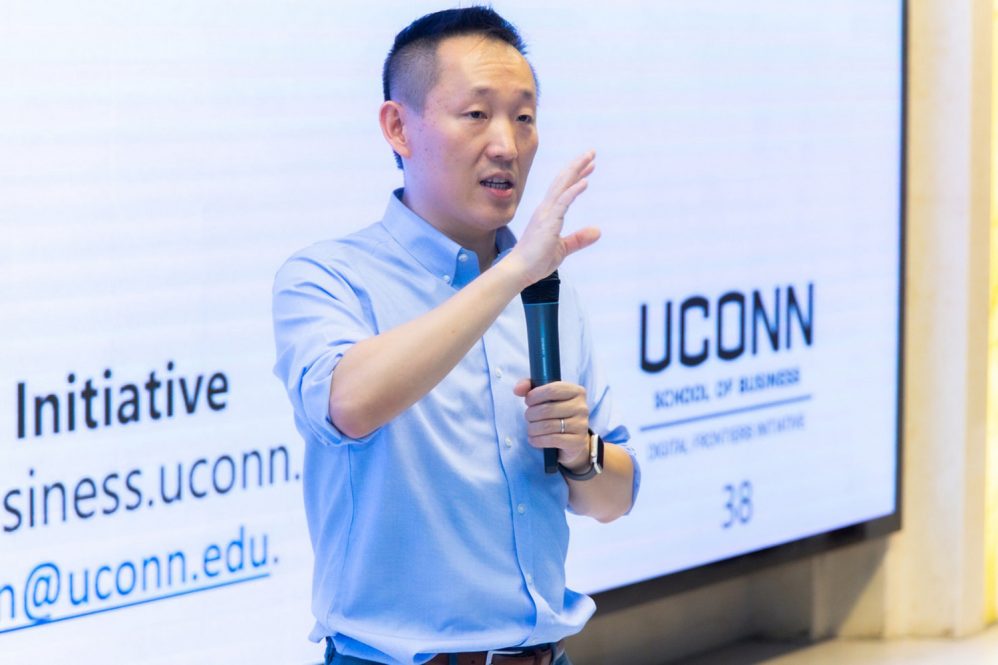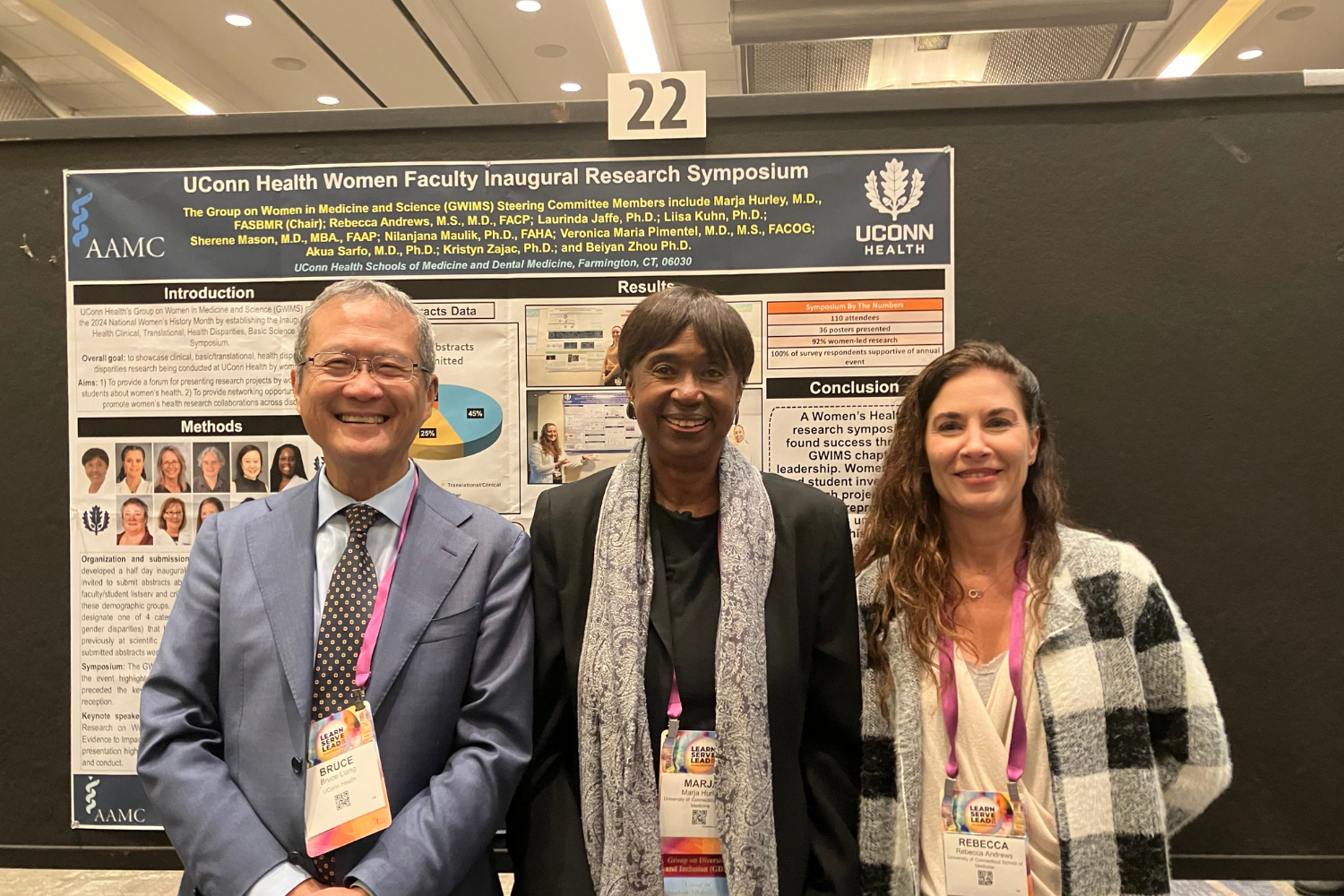OPIM professor Wei Chen, a champion of Connecticut companies learning to integrate generative AI into their businesses, has received a prestigious, national early-career award.
The Information Systems Society recognized Chen with the Sandra A. Slaughter Early Career Award, deeming him a promising scholar likely to make outstanding intellectual contributions to the information systems discipline.
Chen received the award last weekend at the society’s annual conference in Seattle, surrounded by his UConn colleagues and numerous friends.
“This award encourages me to go farther in both my research and its practical applications and renews my drive toward my goals,’’ said Chen, who joined the faculty in 2023.
“Since joining UConn, my work has become more relevant to the business world. In the last year, I’ve learned a great deal about businesses in Connecticut, their needs and interests, and that has informed my research and my mission,’’ he said.
Bridging the Gap Between Business and Academia
Chen is also the academic director of the Connecticut Information Technology Institute (CITI)’s Digital Frontiers Initiative at the School of Business, which strives to facilitate collaborations between industry and academia. The initiative recently formed an advisory board, drawing executives from top companies, including Stanley Black & Decker, PepsiCo, and Otis Elevator. Chen currently focuses on the business applications of generative artificial intelligence (GenAI).
“There are many businesses that want to use AI but just don’t know where to start,’’ Chen said. “As a business school, what we teach and research needs to be relevant to the business practice. The initiative’s emphasis on industry-academic collaboration was the reason that motivated me to take this role.’’
Chen is currently teaching a graduate course on GenAI, and leading talks and workshops for the business community. This semester he is making some of his course content accessible for all who are interested. He is also working with student teams to build an AI benchmark for business applications to help guide and evaluate corporate projects that would be a good fit for GenAI.
“We see great potential in using GenAI to navigate and highlight key sections of complex texts, whether it is a product manual or an FDIC regulation. This allows users to quickly find the answers they need, without having to sift through 1,000 pages,” he said.
Chen said he is excited to be part of a movement that is changing business for the better.
“There are a lot of brilliant, talented people in the field and we’re all contributing,’’ he said. “But the work we do here at UConn, which is informed by industry partnership and serves as a critical bridge between academia and business, is making a much broader impact. I’m passionate about shaping the future of business with these collaborations.’’
Chen Has Also Been Honored In the Past
Professor Cuihong Li, the OPIM department head, said Chen has established himself as a prominent scholar in information systems, publishing cutting-edge research in top journals, including Management Science, Information Systems Research, MIS Quarterly and Production and Operations Management.
He has also worked tirelessly to bridge the gap between academia and industry and is leading the effort to disseminate knowledge and applications of emerging technologies to industry partners.
“Since he joined UConn last year as an associate professor with tenure, he has quickly become a key player, contributing to our increasingly vibrant Stamford campus community,’’ Li said.
Chen is a 2020 recipient of the Gordon B. Davis Young Scholar Award from the INFORMS Information Systems Society, and has received several best paper awards and nominations. In addition to his work on the design and governance of AI, Chen also explores platforms, crowds, and fintech. Chen earned his Ph.D. at the University of California San Diego and previously taught at the University of Arizona.
The Sandra A. Slaughter Early Career Award honors the late Georgia Tech professor and chair Sandra A. Slaughter, a prolific and highly rewarded researcher who worked tirelessly in pursuit of recognizing the potential leaders of the next generation of information systems academics.



